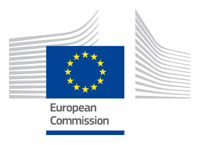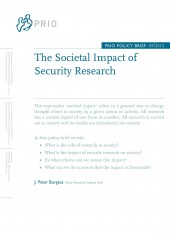Topic: EU
» consultancy
» Notes on European political culture
10
Jun
2014
What is new and what is old about the EC presidency
Against the backdrop of the recent boat-rocking European Parliament elections, which saw the extreme right groups—in particular France’s Front National—make prominent inroads, the process of electing on new president of the European Commission is revealing a new story not only about the politics of the post, but about the particular historical setting in which Europe finds itself.
News comes from Harpsund, Sweden that opposition is growing against the nomination of Jean-Claude Juncker, former Prime Minister of Luxembourg, member of the European People’s Party. With a long and eminent career in European top-politics behind him, Juncker is widely respected as a highly competent political voice in European politics. Why is his candidacy to the post of EC president on the brink of stalling?
15
May
2011
Universal exceptionalism
Exceptionalism is the new word of order in European migration policy.
French President Nicolas Sarkozy and Italian Prime Minister Silvio Berlusconi met on 26 April to propose a fundamental reform of the Schengen border-free area: a national exception to a hard-won European accomplishment: The Schengen Area. The Area, which permits visa-free circulation accross internal borders is second only to the introduction of the euro itself among Europe’s most profound political accomplishments.
Two weeks earlier France had threatened to close its internal border to Italy as a consequence of Italy’s decision, judged by most observers to be self-evident, to grant Tunisian boat-migrants asylum-seeker status in Europe.
As a response to the French-Italian shoving-match, the Commission published a politically deft communication setting out the option of member-state level border measures ‘as a last resort in truly critical situations, until other (emergency) measures have been taken to stabilise the situation at the relevant external border section either at European level, in a spirit of solidarity, and/or at national level, to better comply with the common rules.’ It was debated hotly in plenum in the Parliament last week.
(The Schengen arrangement actually already contains loopholes for extraordinary border-closing measures, designed as a response to football hooliganism.)
Now Denmark has joined the re-natioanlizing bandwagon, suggesting that it will strengthen its own national customs controls and at the same time taking a strong position against further expansion of the Schengen Area. In a memo published yesterday, Home Affairs Commissioner Malmström encouraged restraint. [ More… ]
28
Mar
2011
The International Community recreates itself
The International Community’s role in the crisis in Libya changed dramatically when NATO Secretary General Anders Fogh Rasmussen announced on Saturday that NATO Allies ‘have decided to take on the whole military operation in Libya under the United Nations Security Council Resolution’ (see announcement here). The step, he continued, ‘proves NATO’s capability to take decisive action’. Fogh Rasmussen explained that NATO had already in the previous week put together ‘a complete package of operations in support of the United Nations Resolution by sea and air’. The Secretary General in effect suggested that NATO would take over leadership in principle that de facto is exercising.
Security Council Resolution 1973 was in many regards momentous and without precedent. It builds on principles developed but never fully implement in the doctrine of Responsibility to Protect. Born in the 2001 report of an intergovernmental commission, it central provisions have survived in the fine print of a number of UN resolutions and documents. The doctrine essentially asserts that states have a responsibility to protect their populations from genocide, war crimes, ethnic cleansing, etc. and that where they fail to take action on this responsibility, or are themselves the actual cause of these sufferings, then the responsibility falls to the International Community. Though the resolution does not mention the doctrine, it specifically evokes its language.
The immense challenge that immediately unfolded was a practical one. Who is to implement? Who will apply the no fly zone called for in the Resolution? Who will protect the citizens as required in the Resolution? In the Resolution it is ‘Member States’, ‘acting national or through regional organization or arrangements’ to ‘to take all necessary measures to protect civilians under threat of attack in the country who are under threat or attack’. The Resolution ‘authorizes’, but does not require Member States to act, nor does it specify which Member States should implement.
Arguably this ambiguity plays an important role in making political action possible. Without it, many potential participants in an international action would remain reluctant. The International Community is self-organizing. That is its virtue and its bane. In its response to the Resolution it is a certain International Community, not necessarily the International Community that rises to the challenge. Which one? [ More… ]
31
Dec
2010
Junk Europe
In a matter of days Hungary becomes the new princess of Europe, taking over the rotating EU presidency from Belgium. As Reuters reports, Moody’s credit rating agency downgraded Hungarian sovereign debt to near junk status from Baa1 to Baa3. Fitch Rating, (the second of the top-three global credit raters, together with Moody’s and Standard & Poor’s) also signaled it would lower Hungary’s credit rating to the edge of ‘junk debt status’.
According to the BBC, these new assessment come as a consequence of measures taken by the Hungarian Parliament itself–the aim of cutting the deficit in order to put it in line with the EU’s fiscal requirements–will likely have the reverse effect, sending the country on an unsustainable fiscal path.
As if by financial affinity, Hungary will take over the EU presidency from Belgium, who held the rotating post from July 2010 has, its own political challenges The Belgian political blocks have not succeeded in forming a viable and enduring government since 2007. In the latest round, Belgium has been entirely without a government since April, when the most recent coalition collapsed.
As a consequence, Standard & Poor’s, based in the US, lowered its outlook on Belgium’s credit from ‘stable‘ to ‘negative‘ and warned that the credit rating would be further cut within 6 months, if the government crisis were not resolved and measure not taken to address its relatively high public debt. [ More… ]
13
May
2010
Europe’s new security providers
Here is a riddle. Who or what authority is it that will assure or not assure the sovereignty of Greece and by consequence a number of other European member states in the months and years to come?
Well, we can safely say that it will not be President Karolos Papoulias, the current Greek government, or the national Parliament. No, it is not the European Commission or the European Council, at least not directly. If you guessed the new Franco-German Eurozone alliance, you would be getting warmer, but still be wrong. The International Monetary Fund or the World Bank? Close, but no. [ More… ]
2
Apr
2010
Finance and European identity
Members of the Eurozone, led by German Chancellor Angela Merkel and French President Nicholas Sarokzy agreed on 25 March to coordinate financial support to help Greece face its debt problems. The following day the European Council put its weight behind the agreement, solving, at least for the moment, the Greek debt crisis.
The crisis has set off an extraordinary set of political events on the European playing field. In a new way it unexpectedly raised old issues of European identity, of inclusion and exclusion in Europe, this time relative to the Eurozone. [ More… ]
» Publications - briefs & opinions
» Publications - articles & chapters
 Dialectical constitutionalism?
Dialectical constitutionalism?
in John Erik Fossum and Agustín José Menéndez (eds.), A Multitude of Constitutions? European Constitutional Pluralism in Question. Oslo: ARENA, 76-82.
Download here
» Talks - public lectures
 What is societal security?
What is societal security?
Workshop Security research and Europe’s societal challenges: what do citizens want?, Oslo, 8 June.
Download











